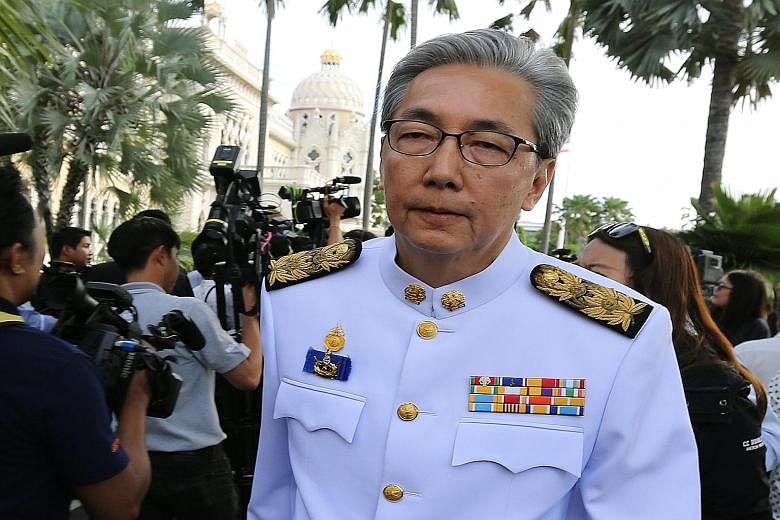During the H5N1 bird flu crisis in Asia in 2004, as the virus raced through bird populations across the region and leapt to humans, Thailand - as one of the world's largest exporters of poultry - had to cull close to 20 million chickens. These included personal pets.
At the head of a panel set up to supervise the battle against the virus was Dr Somkid Jatusripitak, who was deputy prime minister at the time, in a government led by then premier Thaksin Shinawatra.
Dr Somkid was greatly affected by the decision to kill millions of chickens - including his own family's hand-reared bantams. He sought solace at the century-old Chinese temple Wat Leng Noei Yi in Bangkok's Chinatown.
"In my life, I have never killed any animals. I felt very terrible," he said in an interview at the time. "However, I told myself that the chickens had to be culled to save people's lives."
It is that grit, coupled with his astute understanding of markets, that probably led the current military regime to bring Dr Somkid, 62, back into the Cabinet as Deputy Prime Minister to fix the ailing economy, despite his having once been an ally of their arch enemy Mr Thaksin.
Dr Somkid, an ethnic Chinese, holds a PhD in marketing from the Kellogg School of Management at Northwestern University in the United States.
He had trained under marketing guru Philip Kotler, and co-authored with his mentor the 1997 book The Marketing of Nations: A Strategic Approach to Building National Wealth, together with fellow Thai Dr Suvit Maesincee, also a Kellogg School alumnus. He has also taught marketing at Thai universities.
It was Dr Somkid - a co-founder with telecom tycoon Thaksin of the now defunct Thai Rak Thai party that swept to power in 2001 - who devised the early economic measures of Thaksin's government to pump money into the neglected countryside.
Then the military coup of 2006 that ousted Thaksin relegated Dr Somkid to the sidelines.
But when the current military regime seized power in May last year, it appointed him an adviser on foreign economic relations to the National Council for Peace and Order, as the junta has called itself. Dr Somkid was back in the inner circle.
Dr Somkid was brought into the Cabinet on Aug 20 to rescue a floundering economy that may not grow more than 3 per cent this year. Exports fell for seven straight months.
With commodity prices collapsing and prices for agricultural products remaining low, the rural economy is in dire straits. Consumption spending is at rock bottom and millions of families are in debt.
Major infrastructure projects designed to prime the economy and lift Thailand's competitive edge remain largely on paper.
The one bright spot, tourism, was dented by the Aug 17 bomb blast in downtown Bangkok that killed 20 people, 12 of them foreigners.
And new investors are wary after almost a decade of political upheavals and as a transition in the all-important monarchy looms with the current king a frail 87.
As Deputy Prime Minister, Dr Somkid has been put in charge of the economy and oversees the ministries of Finance, Agriculture and Cooperatives, Commerce, Science and Technology, and Industry.
He replaces Mr Pridiyathorn Devakula, who as finance minister in 2006 abruptly imposed capital controls to curb hot money, triggering a US$20 billion (S$28.2 billion) collapse in the stock market.
In his first few days in office, Dr Somkid announced a focus on the rural economy, reviving a local product scheme and pumping more money into a village fund scheme.
"Certainly he is on the right track. The majority of Thais are not urban; agriculture still accounts for 38 per cent of total employment," Dr Pavida Pananond, associate professor of international business at Thammasat Business School, said in an interview. "For a broad-based stimulus, you would have to lift the rural economy."
But she added: "I do expect to hear more on how you then raise the competitiveness of the rural economy, and of the country."
Mr Vikas Kawatra, a senior executive at SCB Capital, told The Straits Times: "The business community is happy. Any change at this stage is welcome because Pridiyathorn's policies produced no economic boost."

